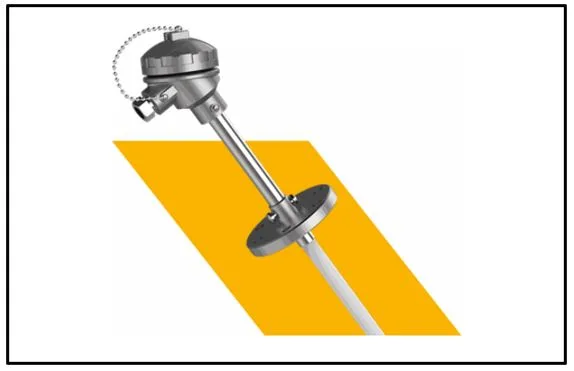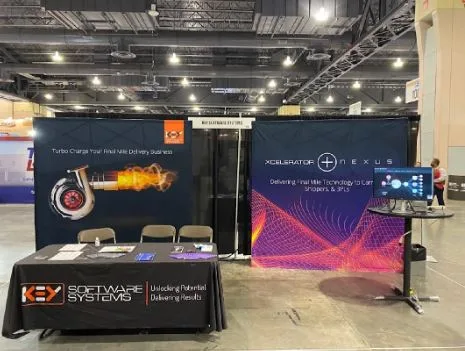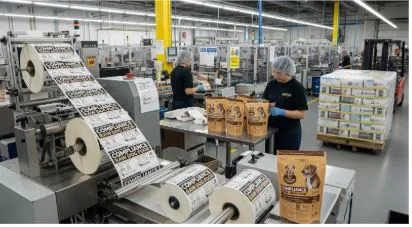Thermocouples And Their Benefits In Industrial Automation
When it comes to industrial automation, accuracy in temperature measurement is essential. Maintaining product quality, operational security, and energy efficiency is necessary for industries such as manufacturing units, refineries, chemical processing plants, power generation facilities, and HVAC systems.
There are many options present when we talk about temperature sensors, but the thermocouple has proven itself over time. It is one of the most prominent and widely used temperature measurement tools.
In this post, we will explain the benefits of using this sensor in industrial automation and its integration into different automation systems, and its future prospects in the industry.
Defining Thermocouples
These are temperature sensors where two different metal wires are combined at one end to create a junction. When this junction gets very hot or cold, it develops an electric potential that can be measured and elucidated as a temperature.
They are available in various types, including J, E, K, B, T, S, and R, for different temperature conditions and ranges. Their easy framework, extensive operating range, and expanded lifespan have made them crucial in several industrial applications.
What Are The Benefits Of Using Thermocouples In Industrial Automation?
There are several advantages of the thermocouples that are crucial for the industrial measurement of temperature:
1. They Are Very Fast To React
They also have small sensing points, so they are able to make rapid temperature measurements. This rapid response is particularly important in automation applications involving rapid correction for safety or product quality reasons, such as in injection moulding, in heat treatment ovens, or in food processing facilities, for example.
2. They Are Durable And Robust
Such sensors have the advantage that they are inherently rugged and robust. They are less fragile than thermistors or RTDs and can measure higher temperatures with good accuracy. Defensive jackets, in fact, can be added to protect them against dampness, decay, and the elements. Among such materials are Inconel, stainless steel, ceramic, or the like, or composites thereof.
3. They Are Temperature Resistant
One of the main advantages of them is their wide range of measurements. Temperature ranges from -200°C to +2300°CThey can be used to measure extreme heat, for example in furnaces, metal working and processing, kilns and smelters, and for ignition of rockets.
4. They Have Various Industrial Applications
Thermocouples are available in a variety of packages ranging from mineral insulated to bare wire, and from surface mounted to fit a variety of applications. They can be used in chemical reactors, exhaust systems, gas turbines, and different severe environments.
5. They Are Cost Effective
Thermocouples are somewhat inexpensive compared to other temperature sensors. Their low cost allows them to be set in several locations in a facility without increasing any costs
Integration Of A Thermocouple With Different Industrial Automation Systems
In an automated arrangement, sensors such as thermocouples are typically linked to a controller, a transmitter, or a Programmable Logic Controller (PLC). The output of these sensors, in millivolts, is intensified to display temperature in the most commonly used outline on industrial screens, easing process tracking and control.
In the Industrial IoT niche, these devices can also be connected to smart sensors and wireless networks, which allows for distant deployment. This allows the tracking and remote diagnosis of procedures, in addition to the receipt of data analytics, all of which are imperative in today’s Industrial workflows.
Future Of Thermocouples In Industrial Automation
Thermocouples are staying updated with trends in automation, with digital transmitters, diagnostics, and wireless options becoming increasingly popular. These changes decrease installation costs, simplify maintenance, and allow deployment of real time data collection, all of which are very significant for effective maintenance and easier industrial operations.
With many industries focusing on sustainability and effective processes, constant and precise temperature measurement will remain crucial for ensuring secure processes. While thermocouples will stay in use for a long period in various applications.
Final Words
Thermocouples have set themselves as a highly dependable temperature measurement system for industrial automation. Their versatility, ease of use, durability, and fast response make them perfect in a number of industrial applications, such as metal processing and profound manufacturing, as well as food processing and power production.
But it is also important to know their drawbacks. Understanding when to use them and when to go for other sensor types will let you obtain the accurate, dependable temperature data you require to keep your processes operating easily.
Thus, when next identifying your industrial temperature measurement requirements, ensure you consider the thermocouple provided by Tempsens, a sensor that can significantly ease the operation of your industrial automation.






